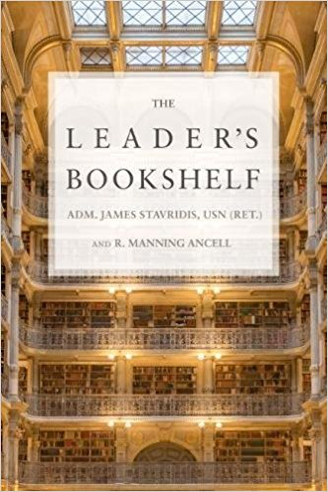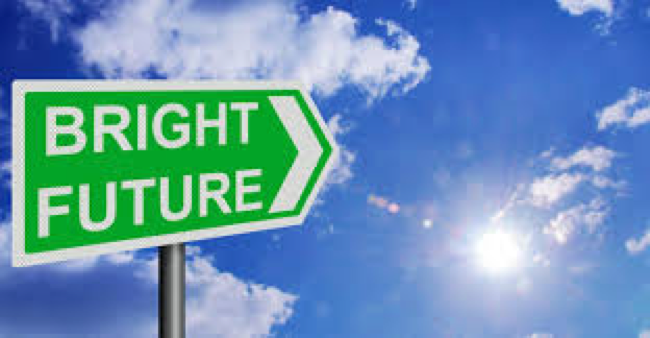Like many Americans I am struggling with how to think about politics in the Age of Trump. I know my own mind – the policies I favor and the personalities I respect – but I’m bewildered by the otherness of the whole situation, the new president, his cabinet, and most of all the American electorate.
Is this, as many have said, categorically different than the political landscape of the past 241 years? Are we going from a proscenium stage to guerrilla street theater? Maybe that’s not the right metaphor. Is this war? Is this a game? Is this reality television? How can we best frame what’s happening to our body politic in the Age of Trump.
I like to keep it simple – not simplistic – but simple, and when I think about politics in America today. I’m convinced the problem, and the answer, can be boiled down to something as simple as basic education.
Eighteen years ago when I got involved with policy at Seattle Public Schools, I told M that “knowledge” was going to be less important in the future than knowing where to get it. Critical thinking has always been the goal of education, but things changed with the advent of the information age. I told her that it would no longer be possible to get by with a knowledge of history, science, mathematics, and language, that the core elements of a broad based education would still be important, but education’s role in the future would be to teach students to select their sources of information, evaluate their credibility, and use that vetted information to guide them in their choices.
Marine Major General James Mattis, our new Secretary of Defense, has a personal library of more than 7,000 volumes. He is a student of history. He has been in combat. He has led men in battle. He is quiet, informed, and well spoken. I trust him. I don’t know if I will agree with his decisions as Secretary of Defense, but I know those decisions will be reasoned and in accordance with a considered world view.
 Donald J. Trump does not read, and his ability to explain what he means is limited by a small adjective-heavy vocabulary. He has difficulty expressing himself in words. His favorites are “tremendous,” “huge,” “disastrous,” “very, very good,” and “incredible.” He watches television and has made it clear that cable news, Fox News in particular, is a credible, reliable source of information on which to base his decisions as Commander in Chief.
Donald J. Trump does not read, and his ability to explain what he means is limited by a small adjective-heavy vocabulary. He has difficulty expressing himself in words. His favorites are “tremendous,” “huge,” “disastrous,” “very, very good,” and “incredible.” He watches television and has made it clear that cable news, Fox News in particular, is a credible, reliable source of information on which to base his decisions as Commander in Chief.
This is crazy. With all the resources and expertise of the government at his disposal, the 45th President of the United States uses a cable news outlet as his go-to source for information. Based on my assessment of his critical thinking skills combined with a hair trigger for impulsive behavior, I don’t trust him to make good decisions for me or the country. Mattis, yes. Trump no. I’m using Mattis and Trump as surrogates (America’s favorite new word) to make a larger point about what’s happened to our political and electoral process.
____
Here’s the problem: a large segment of our electorate, on both the right and left, have lost the ability to evaluate the credibility of their sources and make decisions based on rational, evidence-based material. Scientists are guided by their research, data, and the evidence it produces. Why is that not the standard in the murky world of politics?
In days of yore, pre-Internet, pre-cable news, pre-demise of local newspapers, the majority of the electorate got its news from a few primary sources – broadcast television and radio news (ABC, NBC, CBS, PBS, NPR), daily newspapers, Time, Newsweek, and some vetted political magazines like National Review and Weekly Standard (conservative) or The Nation and New York Review of Books (liberal).
We all read pretty much the same sources and found support for our positions somewhere within the boundaries of the established norms of those sources. The political parties had core differences – small government and lower taxes (GOP) vs. big government and share the wealth programs (Dems). That paradigm has passed away in the information age.
Now, political rhetoric frames our condition in apocalyptic terms; “the end of the American experiment,” “the demise of Madisonian democracy,” “deconstruct the administrative state,” “lock her up,” “build a wall,” “in bed with the Russians,” “Putin’s stooge,” “rid the country of radical Islamic terrorists,” etc.
Immigrants are not the problem. Fear of immigrants might be. Fake news is not news you disagree with; it’s a manufactured lie that’s disseminated as the truth. Turning back the clock on energy policy will not bring back coal mining jobs but education probably will create opportunities for new jobs.
There is room for disagreement over facts. We might disagree about when the world will become uninhabitable because of greenhouse gases, but when 97% of all scientists agree that it will happen if we don’t do something, the facts are not in dispute. Johan Norberg, in his book Progress: Ten Reasons to Look Forward to the Future, challenges us to review the evidence of positive change with an open mind and adopt a more optimistic, less apocalyptic, viewpoint.

Though Norberg is a Swedish journalist, my conservative friends can rest easy in knowing he is also a senior fellow at the Cato Institute, the libertarian think tank founded by the Koch brothers. In Progress, he urges us to moderate our fears, temper our hysteria, and acknowledge the monumental accomplishments that have made this a better world in the last 100 years.
Step by step, in 10 data-packed chapters, Norberg shows us how much improvement has been made in Food, Sanitation, Life Expectancy, Poverty, Violence, Environment, Literacy, Freedom, and Equality in the past 100 years. The evidence is impressive. We all agree that America can be better, but we don’t need draconian measures to “Make America Great Again.” America is great. If we all get out of our silos and read broadly across the “credible” spectrum of information sources, we can see that and we will all make better choices – liberal, conservative, or libertarian – in the future.
My friend, Deryl, abhors the “nanny state.” I’ve told him I think the nanny state is a myth; Americans are hardworking, more than all the other developed democracies in the world. Look at the productivity numbers (fact). Look at the number of hours worked (fact). We work our asses off but get less vacation time (fact), maternity leave (fact), family time (fact), and sick leave (fact) than any other developed country. I don’t see these productivity numbers as all positive but the numbers tell us the facts. And, yes, there are those among us who need help, but we have the resources to help them if needed. It makes all of us better when we lend a hand to those in need. If there is such a thing as a nanny state it’s the one that allows the rich to get richer while the poor among us struggle to pay for food, shelter, and healthcare.
When only 51% of the eligible voters show up to elect our president, we get a president elected by only 25% of the people. We deserve better than someone who only has the support of a quarter of its citizens.
Read the paper. Talk to your friends. Argue with those who disagree with you. Watch Fox News and CNN. Walk a picket line. Attend a protest march. Write your congressman or congesswoman. Challenge yourself to be an informed person. M and I gave our kids subscriptions to the Sunday New York Times for Christmas. They were getting their news online. It’s not the same. It’s important to see all the news – politics, sports, arts, financial – if you want to be an informed citizen. Trust traditional vetted sources – right or left.
As Nike says: Just Do It.
We deserve better than to be led by someone who doesn’t read and trusts Fox News more than his own CIA or FBI experts.

































Bless you, Jack.
Still thinking about your friend who said “Elections have consequences Jack.Get over it”.Not about the dismissiveness of his comment .I’m thinking about where in the world we get our political outlook.
Is it from our levels of intelligence? Maybe ,but I know a lot of smart humans who hold quite divergent points of view. Most of my high school friends-we went to a Jesuit high school in LA- seem to have voted for TRUMP. Almost all have been financially successful and live in good sections of LA.There are about 28,000 homeless people in LA.What do my friends see? Spinoffs of the “nanny state”?
Do our politics raise from less rational parts of out make up?Or angers, resentments, our “hearts”.I really don’t know. Much of the disk of Obama baffled me.He was thoughtful,calm, mentally tough, and in charge of his emotions .Why the hatred> Obama Care was a Republican creation implemented in Mass. by a Republican governor.What is the source of the rage?
Enough for now.
Right on and well stated: “…is limited by a small adjective-heavy vocabulary. He has difficulty expressing himself in words. His favorites are “tremendous,” “huge,” “disastrous,” “very, very good,” and “incredible.” He watches…” I am shocked that this is not well covered in the media. Most presidents have been voracious readers, which I think should be a prerequisite for the job. Trump is not.